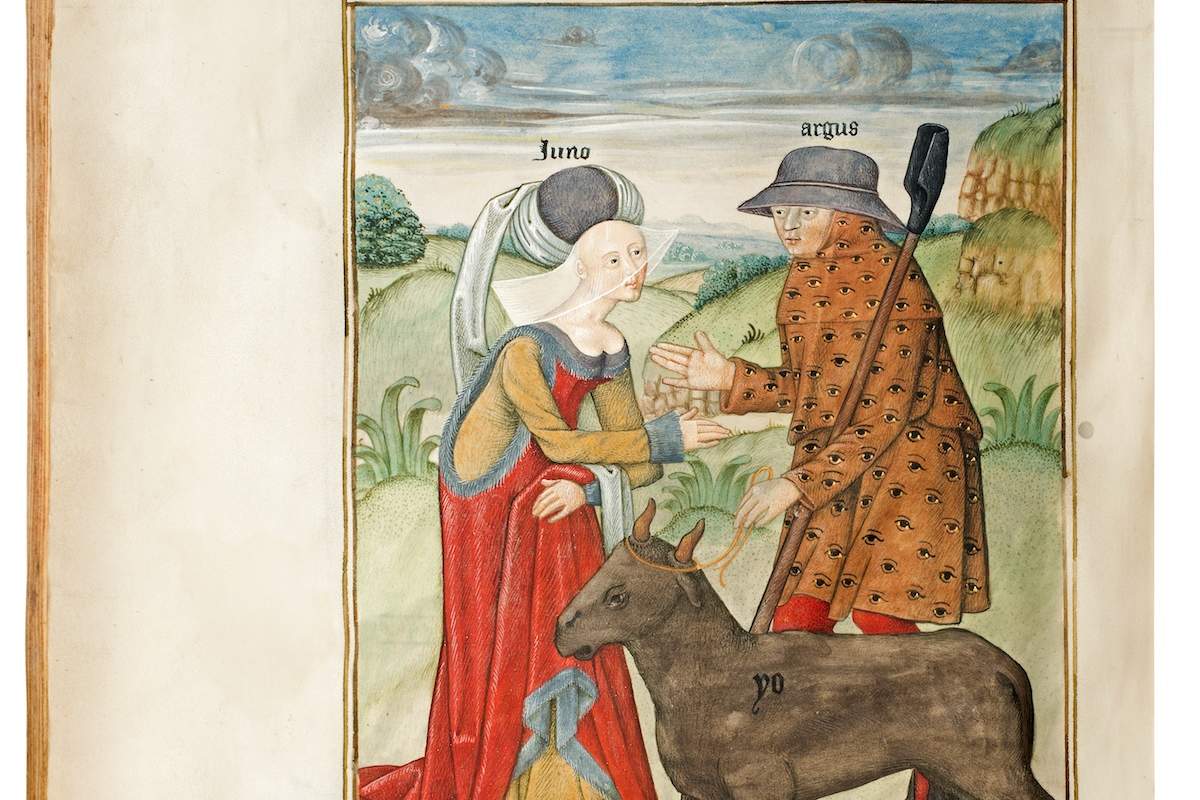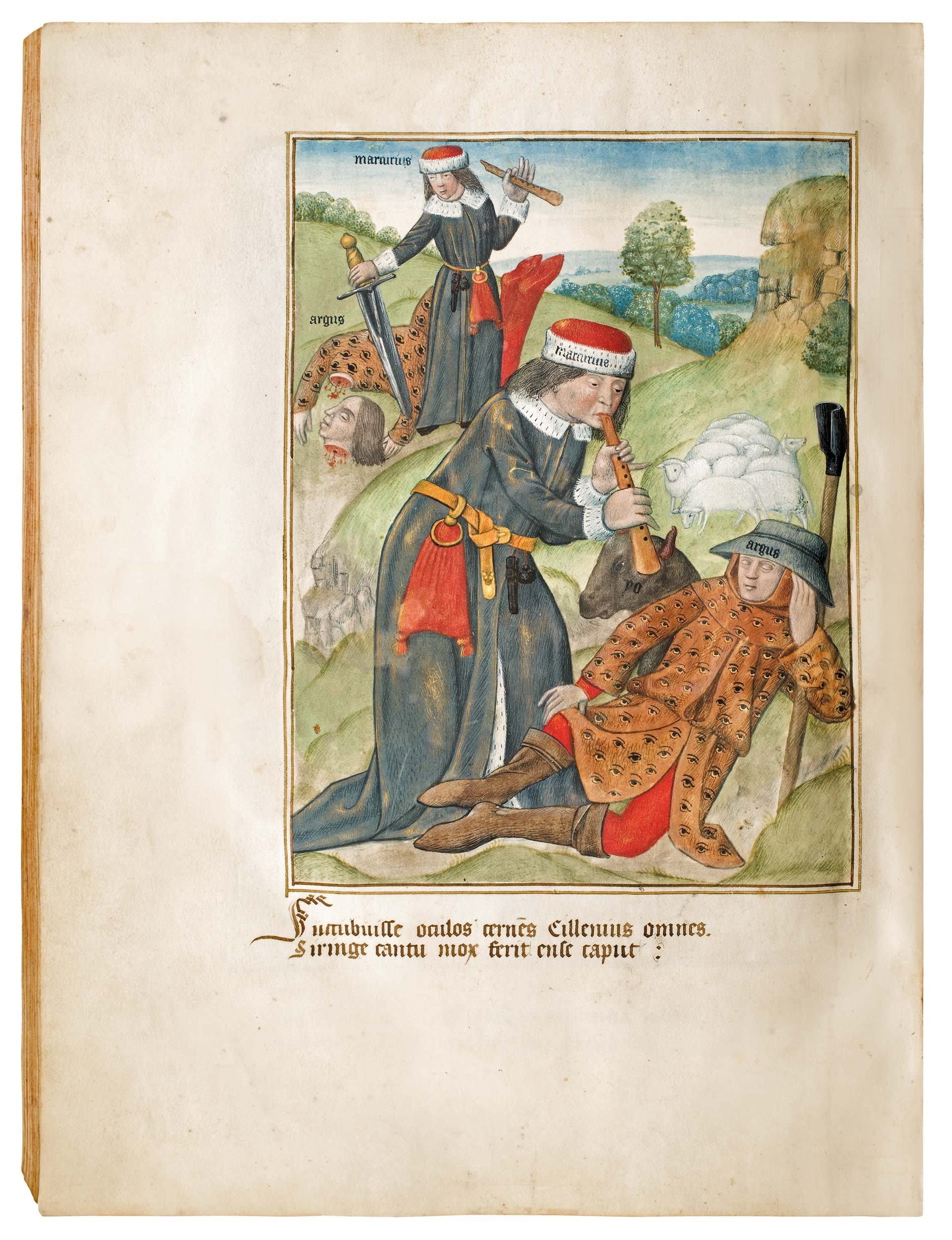
Two miniatures in the manuscript made for Raphael de Mercatellis (see previous blog post) tell the mythological story of Yo and her warder Argus (a story told by Ovid [d. 17 CE], Metamorphoses I: 601-788). The illustrations show that after Jupiter fell in love with Yo, he turned her into a heifer to conceal her from the jealousy of his wife Juno. Juno then set the herdsman Argus, who had 100 eyes all over his body, to guard Yo.
Stephen Fry also lets us follow Zeus-Jupiter in this example of one of his extra-marital escapades, when both he and his wife Hera-Juno bring about a terrible fate to the innocent protagonists Argus and Yo.
Argus was a loyal follower of Hera-Juno. He also possessed a very special gift, which made him a perfect guardian of Yo. He had a hundred eyes…. Obedient as ever to Hera's will, he stationed himself in the field, fixed fifty eyes on Yo and let the other fifty range independently around and up and down, on the lookout for marauders. … Zeus knew his limits of his own cunning, however, so he called upon the wiliest and most amoral rogue on Olympos to aid him. Hermes-Mercury understood right away what needed to be done…. For two hours he played (a set of pipes) and he sang. The music, the afternoon heat, the scent of the poppies, lavender and wild thyme, the soft lapping and purling of a nearby stream - slowly Argus's eyes started to close, one by one. …. With Argus dead, Juno, who had seen what happened, sent down a gadfly which stung Yo so painfully and persistently that she bucked and screamed and galloped away, far from Zeus's reach. (Fry 2017, pp. 190-192).
In the first of two miniatures added to the codex made for Raphael de Mercatellis (d. 1508) in Bruges, the elegantly dressed Juno bends over to instruct Argus, who holds the heifer next to him, tied with a rope. All three figures are depicted in a landscape with some broad-leaved plants, and are identified by name.
The second full-page illustration shows two scenes in one: in the foreground, Mercury, who leans protectively on Yo, puts Argus' eyes to sleep by playing his flute. In the background, we see that Mercury has decapitated Argus. Their names are inscribed as: Yo, Marcurius, and Argus.

Mercury's music makes Argus' 100 eyes fall asleep - a lapse for which he pays with his life. As painted for Raphael de Mercatellis in Bruges, c. 1500.
Stephen Fry is said to show us that the Greek (and Roman) Gods “are like the best and worst of us, they tell us who we are”. Indeed, Fry's retellings give a contemporary resonance that will be appealing to many. As the Penguin advertisers say “No one loves and quarrels, desires and deceives as boldly and brilliantly as Greek gods and goddesses. They are like us, only more so - their actions and adventures scrawled across the heavens above.” Not surprisingly Fry’s book is a big success and has found readers of all ages. The heritage of Antiquity was no less “smart, funny, and above all great fun", in Mercatellis' time as it remains today!
For Raphael de Mercatellis, one of 26 or more illegitimate children that the Duke of Burgundy fathered, these stories may not have had only educational value. Perhaps the adventures of Jupiter and his extra-marital children also carried a personal touch. Is the spirit of these representations connected to the psychology of the patron?
See our video presentation of this manuscript here.


